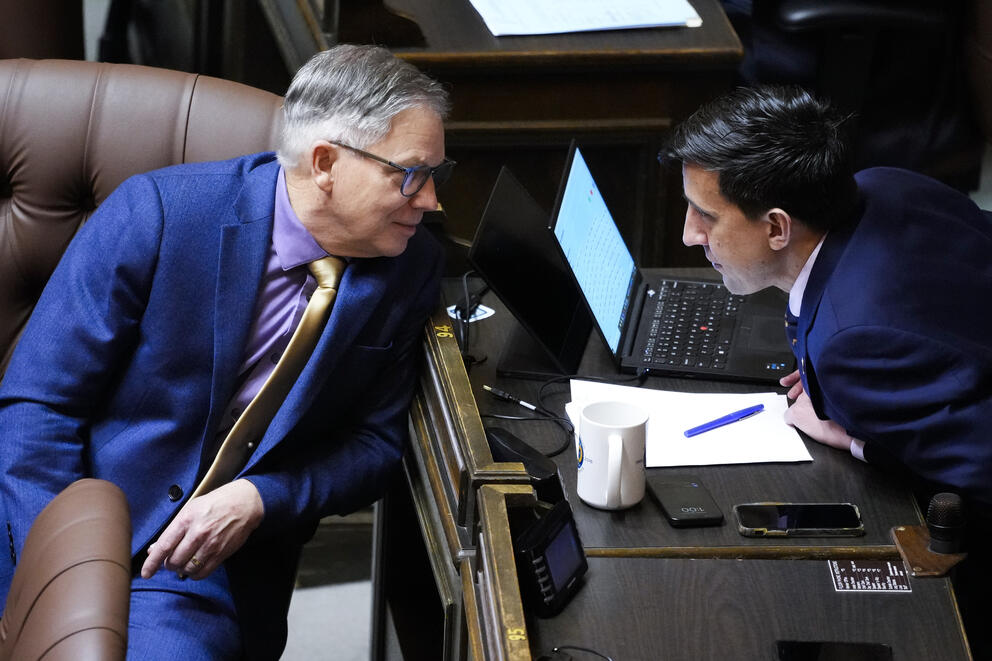Gov. Bob Ferguson announced Tuesday he will not sign either proposed budget released last week by legislative Democrats, saying the plans rely too heavily on a “wealth tax” on the state’s highest earners. Ferguson called the tax “untested” and “difficult to implement.”
House and Senate Democrats each released proposals for how to fund government services for the next four years. To fill an estimated $15 billion shortfall, both proposals rely on a slate of new tax proposals, including a tax on individuals with more than $50 million in stocks, bonds and other financial assets.
Ferguson said Democrats are proposing “far too much” in new taxes and that a wealth tax is an unsustainable idea that may not hold up in court.
“If the Legislature wishes to complete our work on time, they need to immediately move the budget discussions in a significantly different direction on both of these issues,” he said.
Ferguson’s reservations about a wealth tax are not new. A week before he was inaugurated, Ferguson told reporters that he was skeptical of the idea. In his inaugural address, he said he would not sign a budget that requires “unrealistic revenue growth to balance.”
On Tuesday, he said he understands that lawmakers cannot balance the budget on cuts alone but would not commit to any new taxes. Democrats have also proposed new taxes on wealthy employers, and increased business and property taxes.
Ferguson said he is continuing to have conversations with lawmakers about how to move forward.
Sen. June Robinson, D-Everett, chair of the Ways and Means Committee, said she is confident that lawmakers and the governor will work together to complete a budget that puts the state on “strong financial footing for the future.”
“I appreciate the governor providing more clarity today on his vision for the operating budget and his commitment to a balanced approach – one that includes both new revenue and responsible, targeted reductions,” Robinson said in a statement. “This aligns with the thoughtful, forward-looking mindset that’s guided our process from the start.”
Ferguson said crafting a sustainable budget will be even more important with looming federal funding cuts that could cause uncertainty in the state’s financial future. He emphasized the importance of keeping the rainy-day fund – the state’s savings account – intact.
“Our budget situation is grim, but it may soon become dire,” he said.
House Democrats have proposed leaving the state’s $1.6 billion in reserves untouched, while Senate Democrats propose dipping into the fund and paying it back by 2027.
Ferguson said lawmakers must continue to focus on trimming spending. He released a plan last month for about $4 billion in proposed cuts on top of the $3 billion former Gov. Jay Inslee proposed in December. Most of those cuts were included in Democrats’ proposals.
If lawmakers want to finish the legislative session on time, they will need to reach a compromise with Ferguson by April 27. If they don’t finalize a budget by June 30, state funding will run out.







